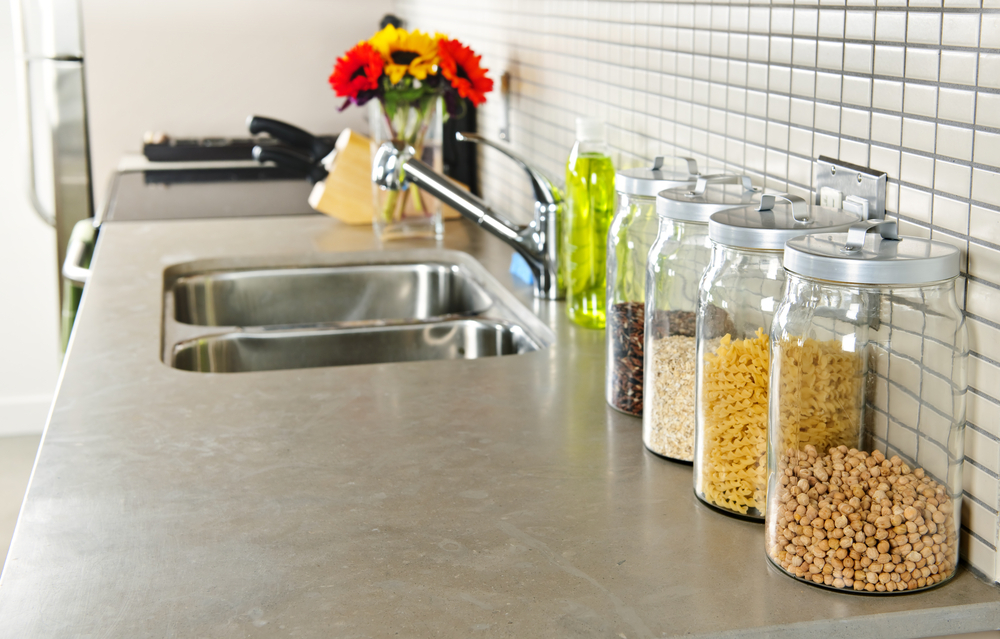Soapstone countertops are gaining in popularity as a kitchen surface material due to their attractive look and durability. While soapstone provides many benefits, it is important for homeowners to understand the pros and cons of the material before making a decision about their countertop surface.
The primary pro of choosing soapstone is its beautiful deep gray color with white veins; it adds a luxurious touch to any kitchen. In addition, soapstone is incredibly durable and generally resistant to stains, heat, and bacteria.
It also requires little maintenance other than an occasional oiling or sanding if needed. Plus, because there are no man-made chemicals used in its production process, soapstone is an eco-friendly choice for those concerned about protecting the environment.
Contents
Pros and Cons of Soapstone Countertops
Soapstone is a natural stone material that has been used for centuries in countertops, and it has become increasingly popular as a kitchen surface. It’s milky appearance gives it a rustic feel when compared to other countertop materials such as granite or quartz. Soapstone has its advantages and disadvantages, which should be considered when selecting the perfect countertop for your home.
The main advantage of soapstone is its unique visual appeal; the beauty of this material lies in its subtlety and muted colors, making an attractive addition to any home. Additionally, soapstone is very durable and can last many years with minimal maintenance. It also does not require sealing like other stones do, meaning that there is less hassle involved with upkeep over time.
The Natural Stone
Soapstone counters are an increasingly popular choice for homeowners looking to update their kitchen space. These counters are made from quarried stone, typically a steatite stone comprised of chlorite, magnesite and dolomite, with many containing quartz as well. The natural stone countertops offer a unique look and feel compared to other materials, such as granite or marble.
The material is not only easy on the eyes but also incredibly durable—soapstone is non-porous and resistant to both heat and staining. In addition to its long lasting quality, soapstone also has a pleasing softness that makes it comfortable to touch or lean against in comparison to other hard surfaces.
For those who appreciate its classic look or want something different than typical countertop materials, soapstone counters can be customized to fit any kitchen style.
Beauty of The Soapstone Countertops
The beauty of soapstone lies in its warmth and natural beauty. This unique stone has been used for centuries in traditional homes, from the American colonies to Victorian England, because of its durable properties and warm tones.
Today, soapstone remains a popular choice for countertops due to its versatility and durability. In addition to being aesthetically pleasing and easy to maintain, it is also heat-resistant and nonporous, making it ideal for kitchen areas where spills are common.
Soapstone is available in a variety of colors ranging from light gray to charcoal black with hues of green or blue depending on the type of stone you choose. Additionally, soapstone’s subtle veining creates an elegant yet rustic look that can enhance any home design style.
Durability
Soapstone has long been used in home decor and construction projects due to its durability. It is not as hard as granite, yet it is more pliable than other stones. This unique quality makes soapstone an attractive option for homeowners who are looking for a durable material that won’t crack unexpectedly under stress or weight.
But just how durable is soapstone? Unlike granite, which can be scratched, chipped, and stained if not treated properly, soapstone is impervious to damages caused by common household items such as knives, citrus fruits and drinks. Soapstone also won’t scratch easily like marble or limestone; on the contrary, it will develop a patina over time that gives it a distinctive look that many people find appealing.
The pliability of soapstone also makes it resistant to cracking from extreme temperatures or pressure changes in the environment.
Easy To Clean
Soapstone has always been a popular choice for countertops due to its strength, durability and beauty. But what sets soapstone apart from other materials is that it’s non-porous, making it incredibly easy to clean and maintain. Cleaning soapstone requires only mild soap and a sponge or dish rag—no special cleaning products are needed! This makes the material very sanitary, making it an ideal choice for households with young children or those who are particularly health conscious.
Aside from being simple to clean, soapstone also has qualities such as heat resistance and stain resistance that make it especially useful in the kitchen. Plus, its dark hue can add a classic touch to any home design aesthetic.
Final Thought
Soapstone countertops are an excellent choice for a kitchen or bathroom renovation project due to their beauty, durability, low maintenance and heat resistance. However, potential buyers should be aware of the cost involved in soapstone installation and its vulnerability to scratches and stains. Ultimately, it is up to the individual buyer to decide if soapstone countertops are the right fit for their needs. Before making any decisions, it is important to consider all available options and weigh their pros and cons carefully.

